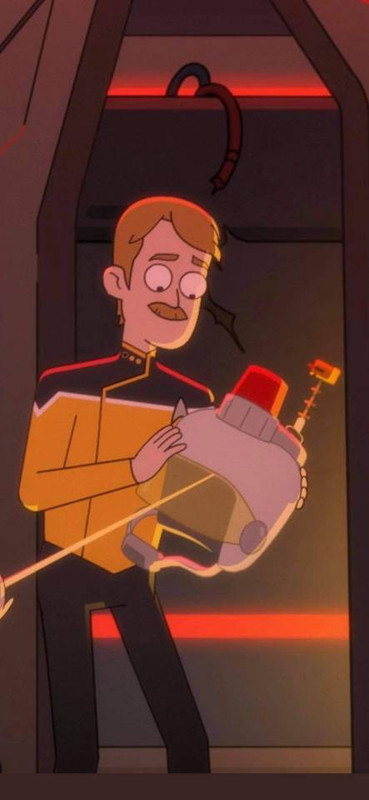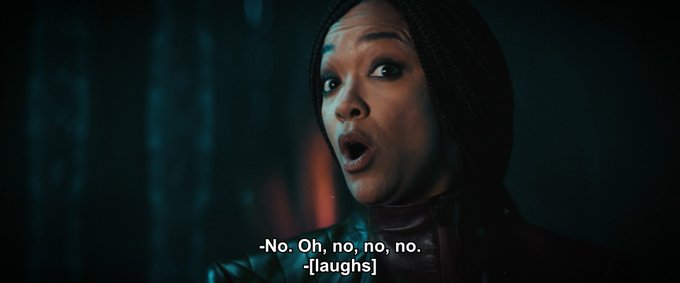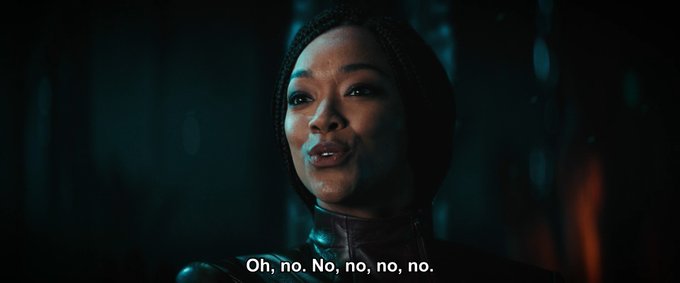Remember the tidal wave of shit that Berman and Braga got? Kurtzman is getting off easy in comparison.
Which was deserved, because many fans felt that Berman & Braga were running on fumes and creatively burned out by the time of
Voyager and
Enterprise, and were coming out with plots that weren't as good as what other sci-fi/fantasy shows had (as much as I liked
Voyager and
Enterprise, I can understand how the fans felt.) But the basting of Abrams, Orci & Kurtzman by these people is getting tiresome; they wanted a different
Star Trek, they got it, but they're still angry? What do these Gen-W and Gen-X fans want? The franchise has to appeal to a younger generation, and the series concept wasn't about only exploring space (as a reminder):
STAR TREK is...
A one hour dramatic television series.
ACTION-ADVENTURE-Science Fiction.
Notice how I bolded,italicized, and capped the first two words of the second paragraph? That's what Roddenberry wanted and intended from the get-go, yet the Gen-W and Gen-X fans didn't seem to understand that, and so they blasted Abrams, Orci & Kurtzman for making the the three movies they did too 'action-oriented' and 'too much like MTV', they blasted Kurtzman for making
Discovery &
Picard 'woke' when the franchise was always that, and they also heaped abuse onto
Lower Decks for not being real
Trek (even though at one point there had been a proposal to create a spin-off sitcom with Majel Barrett as the elder Ms. Troi starring alongside Tim Conway around the time of
TNG, and
Star Trek as a franchise needed to lighten up anyway.) These people don't really know what they want from a
Star Trek show other than it be like the original (which
Star Trek Phase II and
Star Trek Continues was to a big degree, and why both were big successes with fans.)
But in order to work today for an audience of
today, they have to be written, directed, costumed, acted and have sets/costumes/spacecraft/equipment designed for an audience of
today consisting of the now middle-aged Gen-Y & twenty-something Gen-Z, both of whom have different ways of looking at the world and dramatic expectation expected from entertainment. Somebody
summed it up well:
You're making the common mistake of established fans: assuming they're the exclusive target audience for a new version. On the contrary, the primary target audience for a new version is new viewers, people who are discovering the franchise for the first time. The established fanbase is always a diminishing demographic, since people die or change their interests. So the primary goal is always to attract a new audience, which is why characters and concepts are reinvented and modernized. Yes, it's generally preferred to make something that older fans will appreciate too, but that's a secondary consideration. The important thing is to make a show that stands on its own merits.
This is particularly true of American animated shows, which are usually aimed at younger viewers. Caped Crusader is a TV-14 show. That means it's made primarily for high school and college students, people who wouldn't have been alive when B:TAS was on the air.
Apparently many 'fans' don't get that, so they expect the same thing over and over, even when it doesn't work anymore (such as
the 2006 movie of
this character, which was so much like the
1978 movie [and
its 1981 sequel] it was a follow-up to that none of the younger people cared for it, leading to DC and Warners getting
a different director and trying a more harder approach in
the 2013 movie of the character [and who, despite how people feel about said approach,
actually has fans that like it more than they do
the upcoming one that's also going to be a retread of the 2006 movie which is similar to the 1978 movie.)
Of how much the Kelvinverse movies and new shows haven't been 'real'
Star Trek, I'll bring back
this old comment which I think sums up what
Star Trek is just as much as the above-mentioned 1964 draft was.






